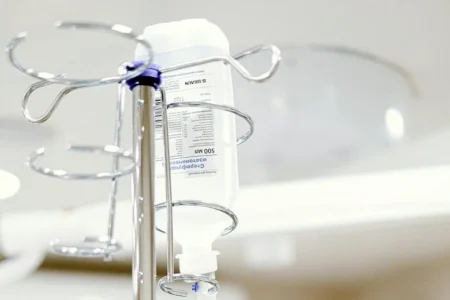The Power of Sleep – A Guide to a Better Night’s Rest
- Updated on: Apr 6, 2025
- 4 min Read
- Published on Feb 9, 2023

After a hectic day’s work, you only need to hit the bed and get into a deep slumber to charge your batteries for the following day. However, not everyone is fortunate enough to sleep through the night. There must have been umpteen times when you have been tossing and turning in bed, desperately waiting for sleep to take over you.
As per the statistical data provided by the NIH (National Institutes of Health), around 7-19% of adults lack a good night’s sleep. The CDC (Centers for Disease Control and Prevention) further reports one out of every three adults in the U.S. has an insufficient sleep.
How Much Sleep Do We Need at Night?
The sleep requirement of individuals varies according to age. For example, young adults (18-25 years) and adults (26-64 years) must sleep for 7-9 hours. Individuals aged 65 years and above need 7-8 hours of sleep, while school-going kids (6-13 years) and teens (14-17 years) should sleep for 9-11 hours and 8-10 hours, respectively.
How Does a Good Night’s Sleep Help?
Good sleep is equivalent to good health – physically and mentally. Read on to learn how a good night’s sleep helps your entire body and mind function appropriately.
1. Proper Brain Function
The National Heart, Lungs and Blood Institute states that sleep helps the brain to function properly. When we sleep, the brain creates new pathways and maintains the existing ones. These pathways help to remember and learn new things. Therefore, inadequate sleep affects the learning process, impacting cognitive development negatively.
2. Helps Maintain Weight
According to a study conducted by the National Library of Medicine in 2018, people sleeping less than 7 hrs at night are at risk of having a higher BMI (Body Mass Index) and eventually becoming obese than those who sleep for more than 7 hrs.
Researchers even mentioned that those with less sleep have increased levels of ghrelin or the hunger hormone and are inclined to eat more to relieve fatigue and tiredness.
3. Promotes Heart Health
The American Heart Association says good sleep leads to a healthy heart. Studies show that sleep deprivation may lead to high blood pressure and cholesterol levels, thus impacting the heart.
4. Improves Social and Emotional Intelligence
Studies have shown how sleep has impacted a person’s social and emotional intelligence. Those with inadequate sleep likely face difficulties comprehending other people’s expressions and emotions.
5. Helps Increase Productivity
Good sleep equals increased productivity in school and at your workplace. In addition, a refreshed mind helps you perform your daily chores better. However, lack of sleep makes you feel jittery and hampers your activities of daily life.
6. Lessens Chances of Depression
Though lack of sleep is not the only cause of depression, both have some link with each other. A 2016 analysis deduced that individuals with insomnia were at a greater risk of depression. Improper sleep makes one more vulnerable to emotional instability, thus triggering depression.
How to Sleep Well?
If you have trouble falling asleep, then there are certain tips you may follow to get a better sleeping schedule.
1. Maintain a Sleeping Schedule
Maintaining a proper sleep schedule is one of the basic aspects of a good night’s sleep. Try keeping a fixed time to go to bed and wake up. This helps the body get accustomed to your sleep-wake cycle. If you aren’t able to sleep in 20 minutes after hitting your bed, don’t keep tossing and turning. Instead, get up, listen to music, or do anything that relaxes you, and return to bed once tired. However, try not to break the routine.
2. Lessen your Daytime Naps
Taking a power nap for around 20-30 minutes or so is okay. It enhances the function of the brain, increasing, learning and memorizing capacities. However, sleeping longer may take a toll on your night’s sleep. Moreover, if you have set your sleeping schedule at 11 pm, avoid napping after 5 pm, as this may interfere with your night’s sleep.
3. Avoid Caffeine Consumption Later in the Day
The benefits of caffeine on your health are not unknown. However, having caffeine about 6 hours before bedtime may affect your sleep. Some recommend decaffeinated coffee as a solution to satisfy evening coffee cravings. Yet, it is important to know that decaf coffee can cause the same issues as its caffeine counterpart if taken around bedtime.
4. Exercise Regularly
Those following a long-term exercise regime that includes brisk walks and jogs have always had a better night’s sleep than those with reduced physical activity. However, heavy exercise in the late evenings or just close to your bedtime may decrease the melatonin levels (hormones affecting the sleep-wake cycle). Low melatonin levels result in less amount of sleep.
5. Create a Good Bedroom Environment
A relaxing bedroom environment contributes to good sleep. Ensure that your bedroom is cut off from any loud external noise when you sleep. Draw the curtains or blinds to prevent outside light from entering the room.
If you have a bedside lamp, make sure that it has warm light colors like red or yellow, which are good for sleep. Blue light, on the other hand, leads to sleep disturbance.
6. Try to Remain Carefree Before Bedtime
Keep your mind free of worries and stress during bedtime. Instead, meditate, go for a massage, read books, listen to soft music, and do everything else that calms your mind.
With all these tips, here is hope that you have a more pleasant sleeping experience each night.












